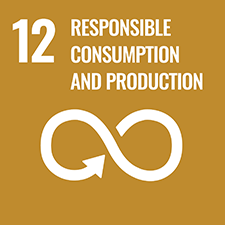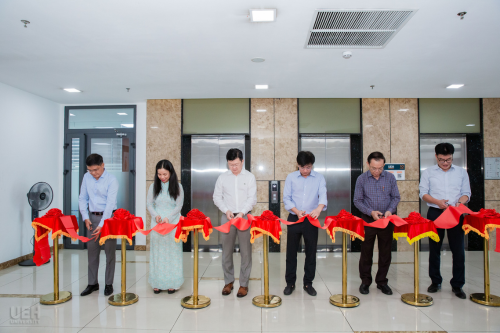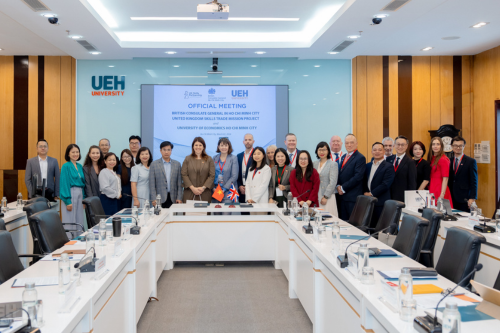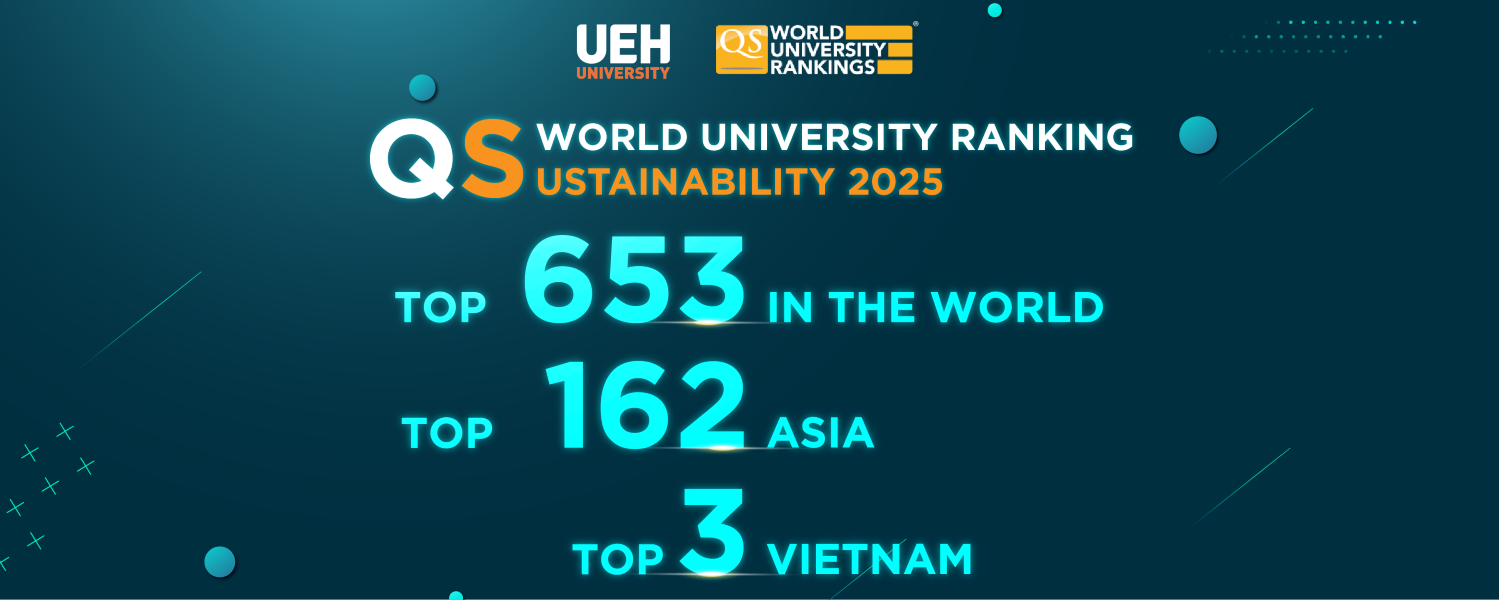
UEH’s Attempts to Sustainable Action with Increased Ranking of 200 in the World's Top 650 and Top 162 Sustainable Universities (QS World Rankings Sustainability 2025)
12 Dec, 2024
In the second year of joining the QS World Rankings Sustainability, the University of Economics Ho Chi Minh City (UEH) has risen in their ranking, entering the Top 650 in the world with the position of 653 and top 162 in Asia in 2025. This has affirmed UEH's commitment to implementing the Multidisciplinary and Sustainable University Strategy, using knowledge to solve social challenges and create positive impacts through academic activities.
The QS World University Rankings Sustainability was launched by Quacquarelli Symonds (QS), UK, for the first time in 2022. This ranking highlights the different ways in which educational institutions around the world are taking action to address Environmental, Social and Governance (ESG) issues. The ranking criteria include Environmental Impact (45%), Social Impact (45%) and Governance (10%). Concurrently, to be eligible for this ranking, educational institutions must be ranked in the QS World University Ranking, QS Regional Ranking, or QS by Subject.
As the first university in Vietnam to announce its pursuit of the Multidisciplinary and Sustainable University Strategy, in 2023, UEH proactively joined the QS World Rankings Sustainability 2024 and achieved positive results in its first participation: Top 860 in the world (out of a total of 1,403 educational institutions), Top 234 in Asia (out of a total of 478 institutions) and Top 3 in Vietnam (out of a total of 8 institutions).
Continuing this journey, this year, UEH rises in the QS World Rankings Sustainability 2025: Top 650 in the world with 653rd position, Top 162 in Asia, and Top 3 in Vietnam. Notably, this year's ranking recorded an increase in the number of participants with the inclusion of 1,751 educational institutions in the world, including 661 educational institutions in Asia and 10 educational institutions in Vietnam. UEH's ranking increase has shown its strong internal strength and determination to act sustainably in association with 5 strategic pillars:
Training: UEH maintains a lifelong learning and the Glocal training platform through its subjects, short-term and long-term courses for different objectives to contribute to SDG 4 - Ensuring Quality Education and equipping learners with the ability to make informed, balanced and comprehensive decisions. Concurrently, UEH University also focuses on providing solid foundational knowledge on sustainable development as a compulsory subject for all majors, helping learners understand and create positive changes for the environment and society towards sustainable development. In the past 3 years, UEH has opened 13 new multidisciplinary programs to meet modern trends and human resource needs for future generations listed as Technology and innovation, Digital media and multimedia design, Accounting with international professional certificates, Financial technology (Fintech), Marketing technology (Martech), Digital business, Robotics and artificial intelligence (Robot & AI), Logistics and supply chain technology engineer (Logtech), Information security, Information technology, Computer science, ArtTech, Intelligent control and automation. Nearly 100 extracurricular activities, competitions, seminars, and events with topics related to sustainable development, environmental protection, green technology, green economy, green university, circular economy, sustainable urban areas and beyond have taken place.
Research: UEH has more than 350 research papers by their lecturers and staff and 71 research papers by students related to the topics of green lifestyle, circular economy and more contributing to SDG 7 - Affordable clean energy, SDG 13 - Climate action, SDG 14 - Marine resources and environment.
Governance: Consistently implementing the principles of “Democracy - Publicity - Fairness”, all members at UEH are equal, have their rights guaranteed, and regularly participate in decision-making and implementation of policies, activities, and programs. In addition, UEH integrates sustainable activities into its governance and builds a green culture as a daily activity contributing to SDG 12 – Responsible consumption and production, SDG 15 – Land resources and environment, and SDG 16 – Peace, justice, and strong institutions.
Operation: During the operation of the green campus with the UEH Green Campus project, up to the current time, 5 tons of landfill waste has been reduced thanks to the thorough application of the waste classification model at source, increasing the waste life cycle and responsible consumption according to SDG 12 and 15.
Community Connection: UEH constantly connects with organizations and communities interested in the field of sustainability to share and discuss to solve environmental challenges, including the International Forum for Sustainability (IFS), which contributes greatly to SDG 17 - Cooperation to realize the goals.
To maintain and develop a sustainable university strategy for internationalization, every year, UEH integrates 17 SDGs into all activities. Accordingly, the criteria for a sustainable university in 3 rankings, including QS Sustainability, THE Impact, and UI Green Metrics, are synthesized and assigned by UEH to be integrated into the annual goals of each unit (OKRs). It can be seen that to achieve remarkable progress on each Ranking is the persistent effort of each member college, campus, and unit under UEH. For example, SDG 1 - No poverty, will be a synthesis of actions and initiatives related to admission activities, scholarships, tuition waiver, student care, and job support after graduation for students in the 20% group of households with the lowest income in the country. Moreover, SDG 17 - Partnerships for the goals, is a collection of initiatives and actions to connect partners in training, research, and workshops with the participation of domestic and foreign experts in interdisciplinary dialogues, transferring knowledge, policy advice, and research topics to contribute to the local and central levels. More information about UEH's actions to realize 17SDGs can be found on this website.
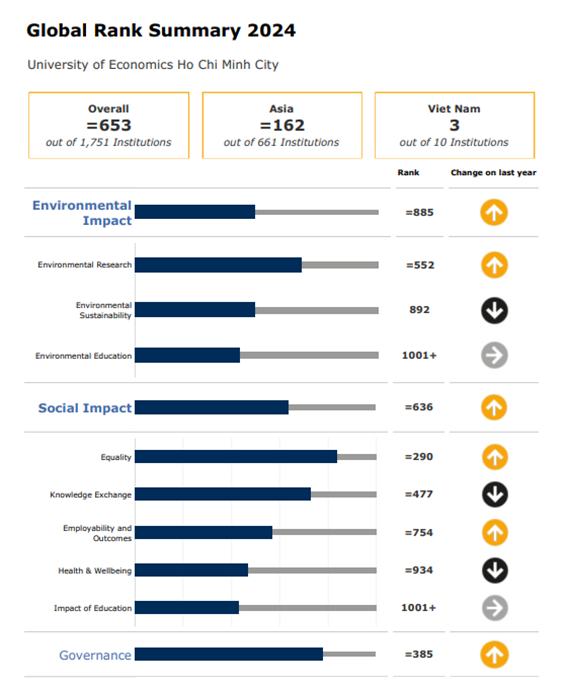
“UEH's strategic orientations over the nearly 50 years of formation and development have always been consistent with the goals of sustainable development and balancing the factors of Environment, Society and Governance (ESG - Environmental - Social - Governance). The results that UEH has achieved today are proof of its persistent commitment to the Multidisciplinary development strategy and Sustainable action in the period 2021-2030. With the pioneering spirit and internal strength, we hope that all UEHers will join and proactively face new challenges to join the University in creating a better future for learners, the community and the world to contribute to the development of a more prosperous society" is what emphasized Prof. Dr. Nguyen Dong Phong - Party Secretary, Chairman of the Council of University of Economics Ho Chi Minh City (UEH)./.
News and photos: Department of Communications and Partnerships, Department of Research - Development and Global Engagement


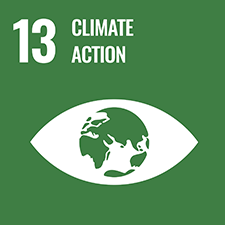



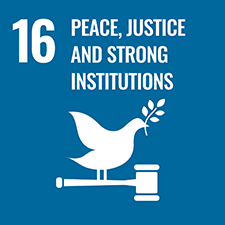
![[Research Contribution] Modernizing and Elevating Vietnamese Higher Education: Creating Breakthroughs in High-Caliber Human Resource Development and Talent Cultivation, Leading Research and Innovation](/images/upload/thumbnail/ueh-thumbnail-639083193174001549.png)
![[Research Contribution] Sustainable Manufacturing: A Driving Force for the Green Economy and the Challenges Ahead](/images/upload/thumbnail/ueh-thumbnail-639082294182922007.png)
